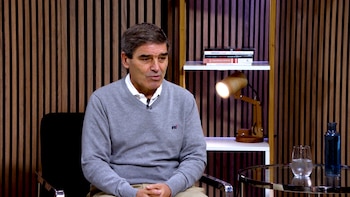
(ATR) IOC president Thomas Bach says the smooth running of the World Cup in Brazil bodes well for the 2016 Olympics in Rio de Janeiro.
"The success of the World Cup will give a push, will be supportive to the work of the organizing committee for the Olympic Games in Rio de Janeiro," Bach told Around the Rings in an interview this week on the sidelines of the IOC debriefing in Pyeongchang from Sochi 2014. And Bach notes that the IOC has observed changes from Rio after the IOC expressed some concerns a couple of months ago.
"We have already seen great dynamism, in particular on behalf of the mayor of Rio and the governor, who are working closely with the organizing committee, taking responsibility. This has brought the organization on a big step forward. There is still no time to lose, not a day to lose, but there has been significant progress."
Bach will get to see firsthand how Rio de Janeiro is handling the World Cup when he heads to Brazil at the end of next week to attend the final match July 13. He says he’s been to every FIFA World Cup final since 1986. Whether he gets to cheer on his native Germany depends in part on the July 4 quarterfinal showdown with France.
The IOC president says the IOC Executive Board will still review the three cities running for the 2022 Winter Olympics when it meets next week in Lausanne. This week, the race lost Lviv when Ukraine officials decided to drop out given the challenges the country faces, leaving open the possibility of a bid for the 2026 Winter Games.
Bach would not speculate on whether the IOC would further cut the field, which now includes Almaty, Beijing, and Oslo.
"This is not about quantity. This is about quality," he said about the dwindling field for 2022. Three cities have dropped out since filing their application to bid last year.
"With this pre-selection, we want to ensure that wherever the Games take place among the candidate cities, they will be good Games. Therefore, the choice will not be made on numbers, on quantity. It will be made on quality."
The executive board will decide July 7 which of the three cities will go on to the final round of bidding that leads up to an IOC session vote at the end of July next year.
Bach says the IOC recognizes that it must communicate more to the public about the contribution it makes toward staging the Winter and Summer Olympics. He says the IOC will contribute about $750 million for the Sochi Olympics, a number he expects to reach $850 million for the Pyeongchang Games.
But the IOC president says what may be even more important to public perceptions about the cost of the Olympics is distinguishing between operation costs paid for out of Olympic revenues and infrastructure costs paid by governments in the host city. In Sochi, reports suggest more than $50 billion dollars was spent on infrastructure by the government ahead of the Games.
"We must explain and explain and explain the two different budgets for the Games," Bach emphasized in the interview. He says Olympic bid cities do not have to engage in a spending battle to win the Games.
"We want to have authentic Games. We want to have Games that reflect the culture and environment of the respective host city. So if one region, such as Sochi, wants to take the Games as a catalyst for the development of the whole region, this is one approach.
"The other approach is to say we have many existing facilities. We want to use these existing facilities. We want to have for the Olympics, more temporary or demountable facilities. This, for the IOC, has the same quality."
Written by Ed Hula
20 Years at #1: Your best source of news about the Olympics is AroundTheRings.com, for subscribers only.
Últimas Noticias
Utah’s Olympic venues an integral part of the equation as Salt Lake City seeks a Winter Games encore
Utah Olympic Legacy Foundation chief of sport development Luke Bodensteiner says there is a “real urgency to make this happen in 2030”. He discusses the mission of the non-profit organization, the legacy from the 2002 Winter Games and future ambitions.

IOC president tells Olympic Movement “we will again have safe and secure Olympic Games” in Beijing
Thomas Bach, in an open letter on Friday, also thanked stakeholders for their “unprecedented” efforts to make Tokyo 2020 a success despite the pandemic.

Boxing’s place in the Olympics remains in peril as IOC still unhappy with the state of AIBA’s reform efforts
The IOC says issues concerning governance, finance, and refereeing and judging must be sorted out to its satisfaction. AIBA says it’s confident that will happen and the federation will be reinstated.

IOC president details Olympic community efforts to get Afghans out of danger after Taliban return to power
Thomas Bach says the Afghanistan NOC remains under IOC recognition, noting that the current leadership was democratically elected in 2019. But he says the IOC will be monitoring what happens in the future. The story had been revealed on August 31 in an article by Miguel Hernandez in Around the Rings

North Korea suspended by IOC for failing to participate in Tokyo though its athletes could still take part in Beijing 2022
Playbooks for Beijing 2022 will ”most likely” be released in October, according to IOC President Thomas Bach.




